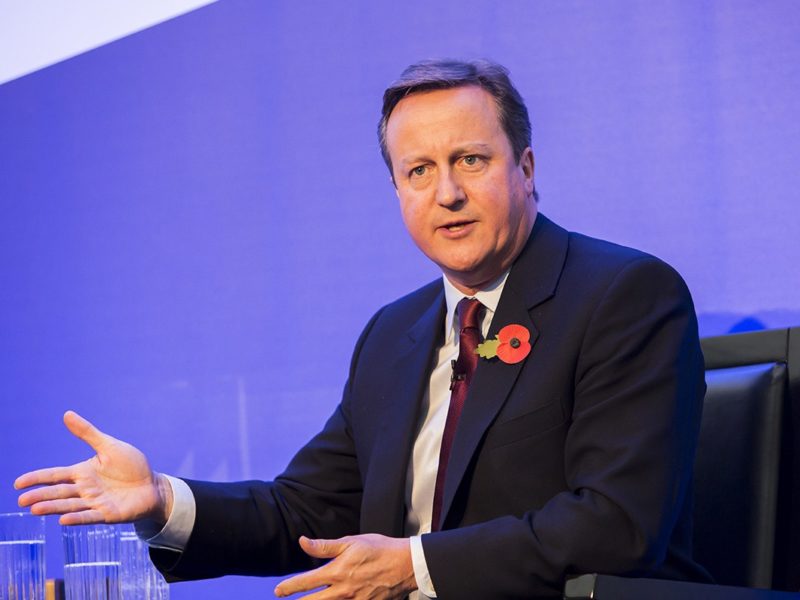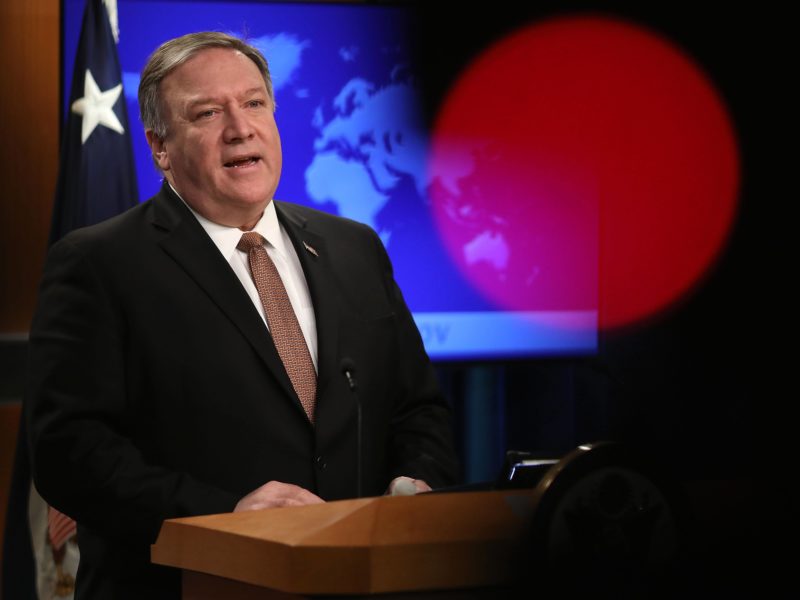Wiley Lecture Series Panel: U.S. And Mexico Are Stronger Together
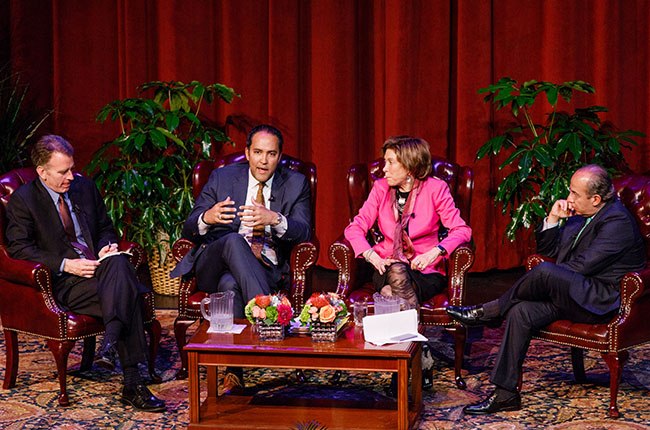
Although they occupy different spaces on the ideological spectrum, a star-studded panel of government leaders and policymakers came to one conclusion on the future of U.S.-Mexico relations: the two nations are better off working together.
Former Mexican President Felipe Calderón, U.S. Rep. Will Hurd, and former National Economic Council Director Dr. Laura Tyson came under one roof at Texas A&M University Friday for the latest installment of the Wiley Lecture series for a sprawling discussion that included trade, national security, immigration and more. The trio was joined by NPR Morning Edition Host Steve Inskeep, who guided the conversation in front of the full audience Rudder Theatre.
Calderón was the first to speak and said the questions that America faces, especially on issues of trade and national security, can be answered through a relationship grounded in cooperation with Mexico rather than isolationism. He added the solutions can be mutually beneficial to the two countries.
“The complex relationship between us is about how to build a stronger more competitive economy as a whole in North America, because this is the only way these economies can compete in the world,” Calderón said.
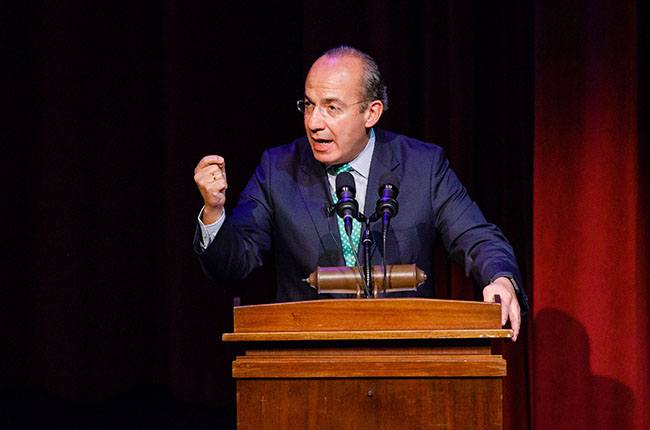
Near the end of his opening remarks, he discussed the presently uneasy relationship between the two nations and made a call for cooperation and closer collaboration.
“Mexico is not the enemy, Mexicans are not the enemies of the U.S. and I hope we can understand that. We need to work together,” Calderón said. “The only way in which we can secure both sides of the border is by working together, and I hope that in the future we can all understand that and that America will continue to be great and Mexico will be great one day as well.”
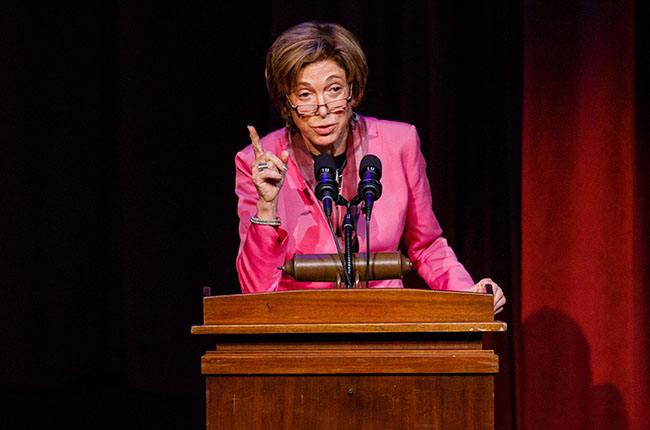
Tyson served under former President Bill Clinton during the early years of the North American Free Trade Agreement (NAFTA) from 1993-1995 and took on some of points of contention in the U.S.-Mexico trade debate in her remarks. The decline of manufacturing jobs in America emerged as a thread that ran through the presidential debates on both sides of the aisle, and NAFTA was often to blame. But Tyson discussed that automation, not free trade agreements, inflicted the most damage on manufacturing jobs, as production increased exponentially while employment decreased between 1950 and 2014.
She brought up a potential solution in the area of “rules of origin” in regard to the NAFTA agreement. Currently, 62 percent of a product must be manufactured within the free trade zone of Canada, the U.S. and Mexico to be sold tariff-free. She suggested that moving the percentage up to anywhere from 70 to 85 percent could bring back some employment.
“Do not look to trade and trade agreements and ripping up NAFTA as anything that will address manufacturing employment losses in the United States,” Tyson said. “They are not the cause, and ripping up those agreements will make things worse, not better.”
Gracias al @FelipeCalderon por una gran conversación @TAMU @mscwiley sobre la importancia de #NAFTA #GigEm pic.twitter.com/XIr7fJoTvR
— Will Hurd (@WillHurd) April 1, 2017
Hurd, who oversees more than 800 miles of border territory in his Texas district from San Antonio to El Paso, said legislators need to be mindful of taxpayer dollars when discussing issues of border security. He said an alternative to a wall “from sea to shining sea” along the U.S.-Mexico border could include a network of underground fiber optic cables and unmanned aerial vehicles to monitor activity.
In terms of trade, Hurd said NAFTA is due for an update to bring it up to speed from when it was first put into place more than 20 years ago. He said commercial use of the Internet, robust oil and gas energy sectors in south Texas and northern Mexico, and modern Mexican foreign investment did not exist in the early ‘90s and would need to be topics of discussion in crafting what he called “NAFTA 2.0.”
“In order to be good stewards of hard-earned taxpayer dollars, we should leverage that in the most efficient way that actually solves the problem. We can protect the border and facilitate the movement of goods and services at the same time.”
Spend a day with students at @TAMU and you leave feeling better about the country's future. Gig 'em, Aggies.
— Steve Inskeep (@NPRinskeep) April 1, 2017
